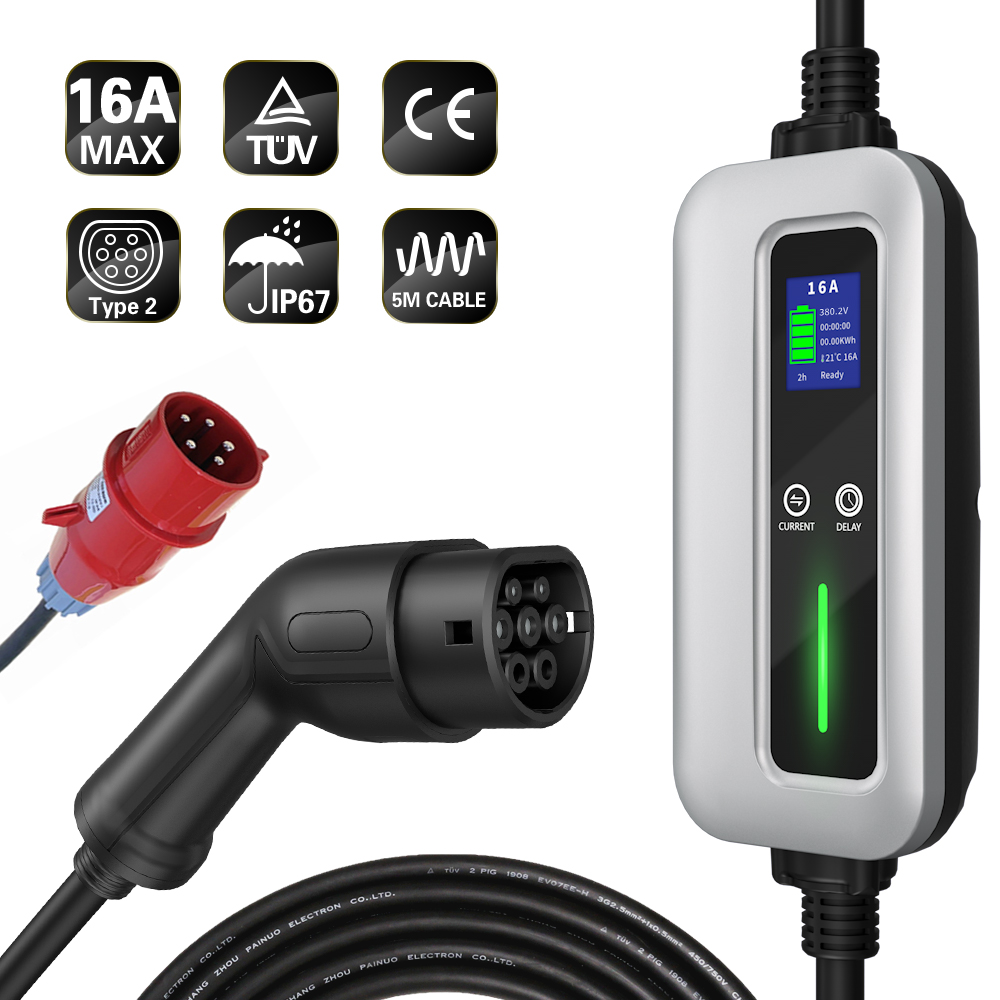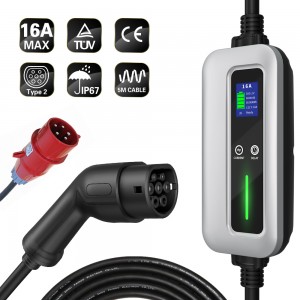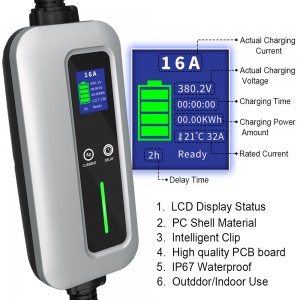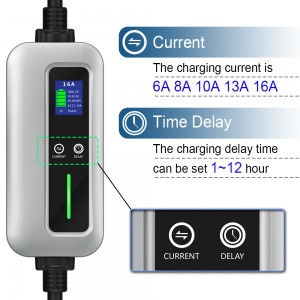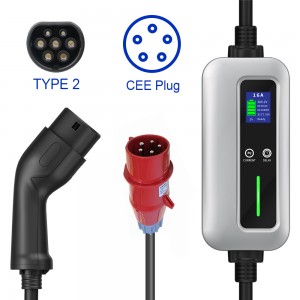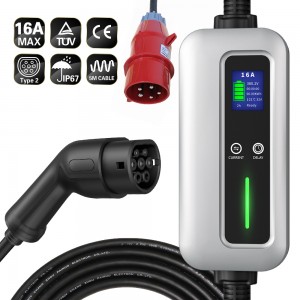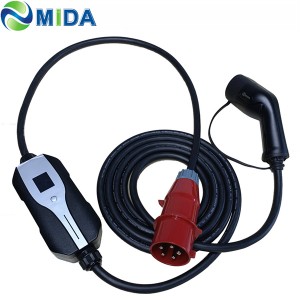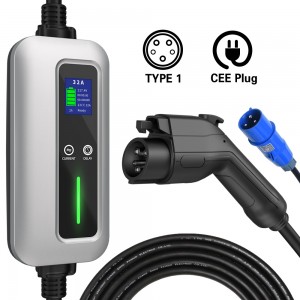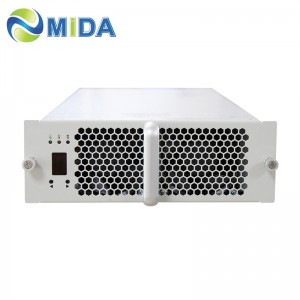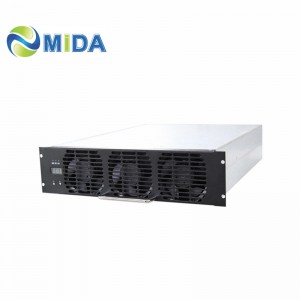3phase 16A 11KW portable ev charger type 2 11KW ev charger
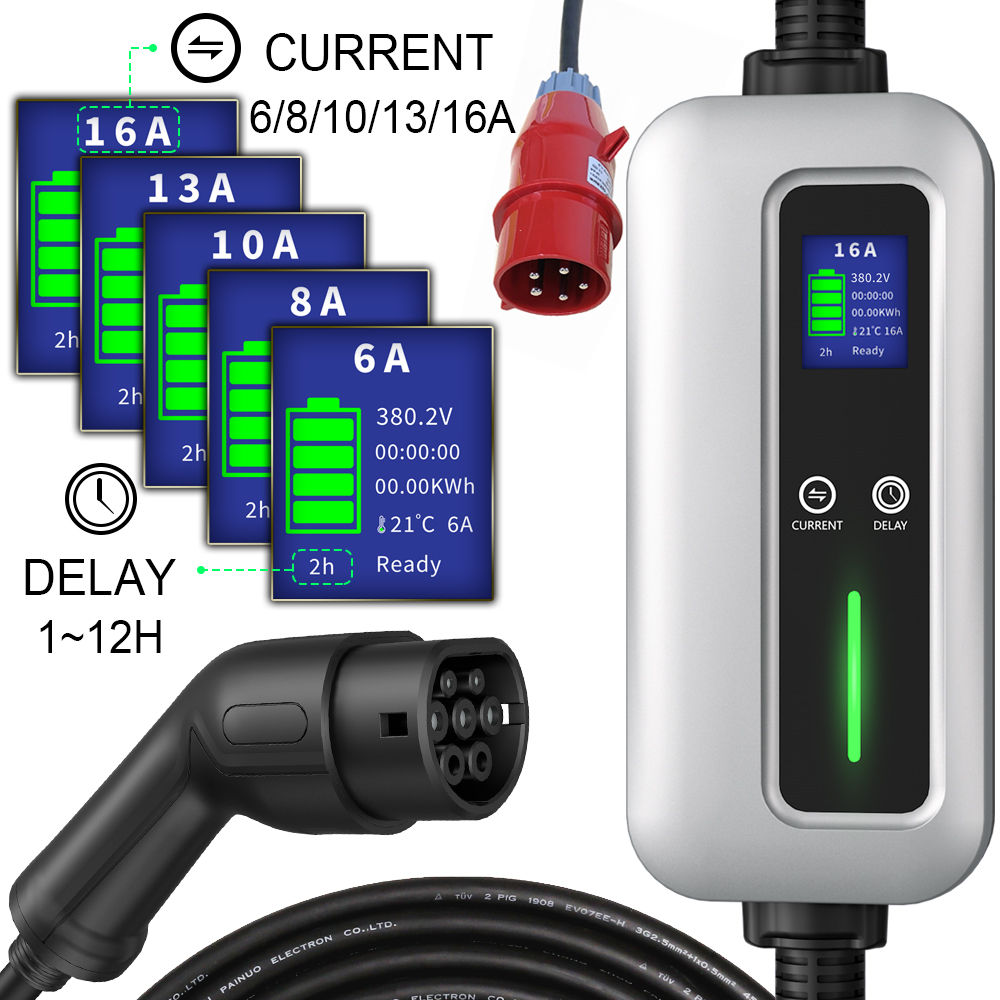
CORE ADVANTAGE
High compatibility
High speed charging
Equipped Type A filter
Automatically Intelligent Repair
Automatically restart function
Over-temperature protection
Full link temperature control system
EV PLUG
Integrated design
Long working Life
Good conductivity
Self filter the surface impurities
Silver plating design of terminals
Real-time temperature monitoring
Heat Sensor guarantee the charging safety
BOX BODY
LCD display
IK10 Rugged enclosure
Higher waterproof performance
IP66, rolling-resistance system
TPU CABLE
Comfortable to touch
Durable and preservative
EU standard ,Halogon-free
High and cold temperature resistance
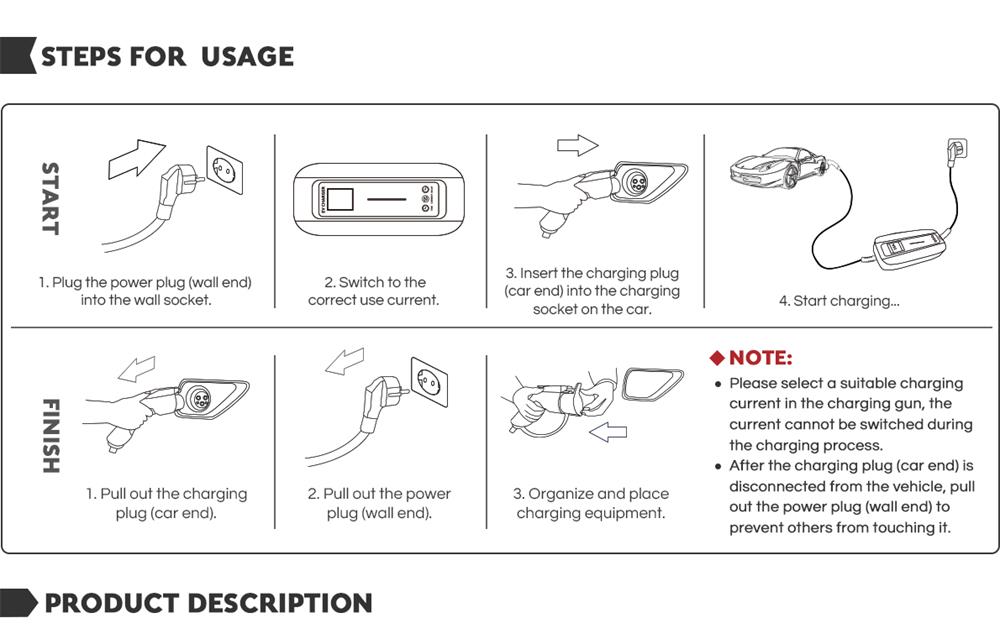
Electric vehicles now include cars, transit buses, trucks of all sizes, and even big-rig tractor trailers that are at least partially powered by electricity
Electric vehicles fall into three main categories:
- Battery electric vehicles are powered by electricity stored in a battery pack.
- Plug-in hybrids combine a gasoline or diesel engine with an electric motor and large rechargeable battery.
- Fuel cell vehicles split electrons from hydrogen molecules to produce electricity to run the motor.
Our company manufacturing many kinds of ev products for electric vehicle in both AC and DC. Portable and Wallbox EV Charger, no matter you are going to charge your car at home or outside home, we have solutions for you.
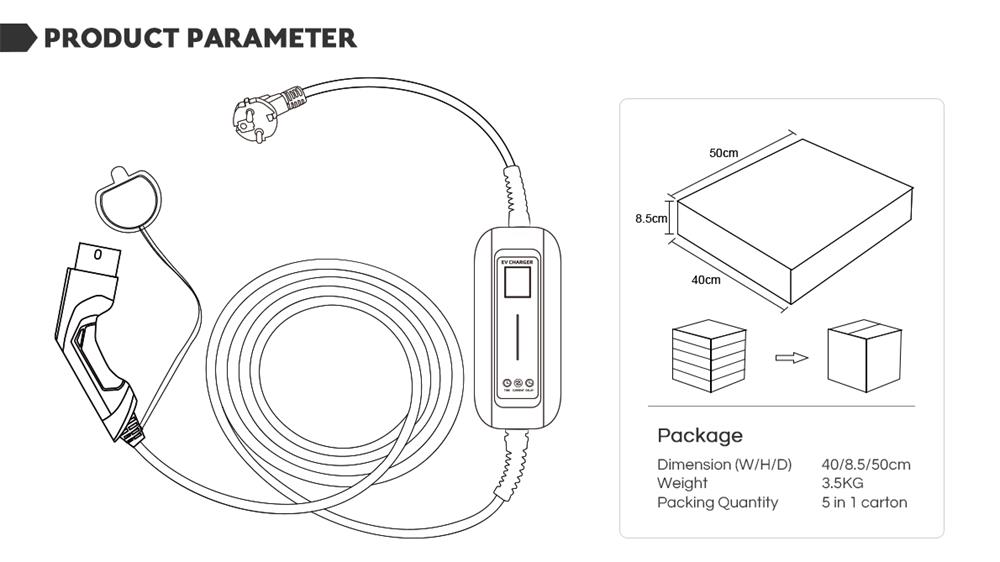
| Item | Mode 2 EV Charger Cable | ||
| Product Mode | MIDA-EVSE-PE16 | ||
| Rated Current | 6A/8A / 10A / 13A / 16A ( Optional ) | ||
| Rated Power | Max 11KW | ||
| Operation Voltage | AC 380 V | ||
| Rate Frequency | 50Hz/60Hz | ||
| Withstand Voltage | 2000V | ||
| Contact Resistance | 0.5mΩ Max | ||
| Terminal Temperature Rise | <50K | ||
| Shell Material | ABS and PC Flame Retardant Grade UL94 V-0 | ||
| Mechanical Life | No-Load Plug In / Pull Out >10000 Times | ||
| Operating Temperature | -25°C ~ +55°C | ||
| Storage Temperature | -40°C ~ +80°C | ||
| Protection Degree | IP65 | ||
| EV Control Box Size | 248mm (L) X 104mm (W) X 47mm (H) | ||
| Standard | IEC 62752 , IEC 61851 | ||
| Certification | TUV,CE Approved | ||
| Protection | 1.Over and under frequency protection 3.Leakage Current Protection (restart recover) 5.Overload protection (self-checking recover) 7.Over voltage and under-voltage protection 2. Over Current Protection 4. Over Temperature Protection 6. Ground Protection and Short circuit protection |
||

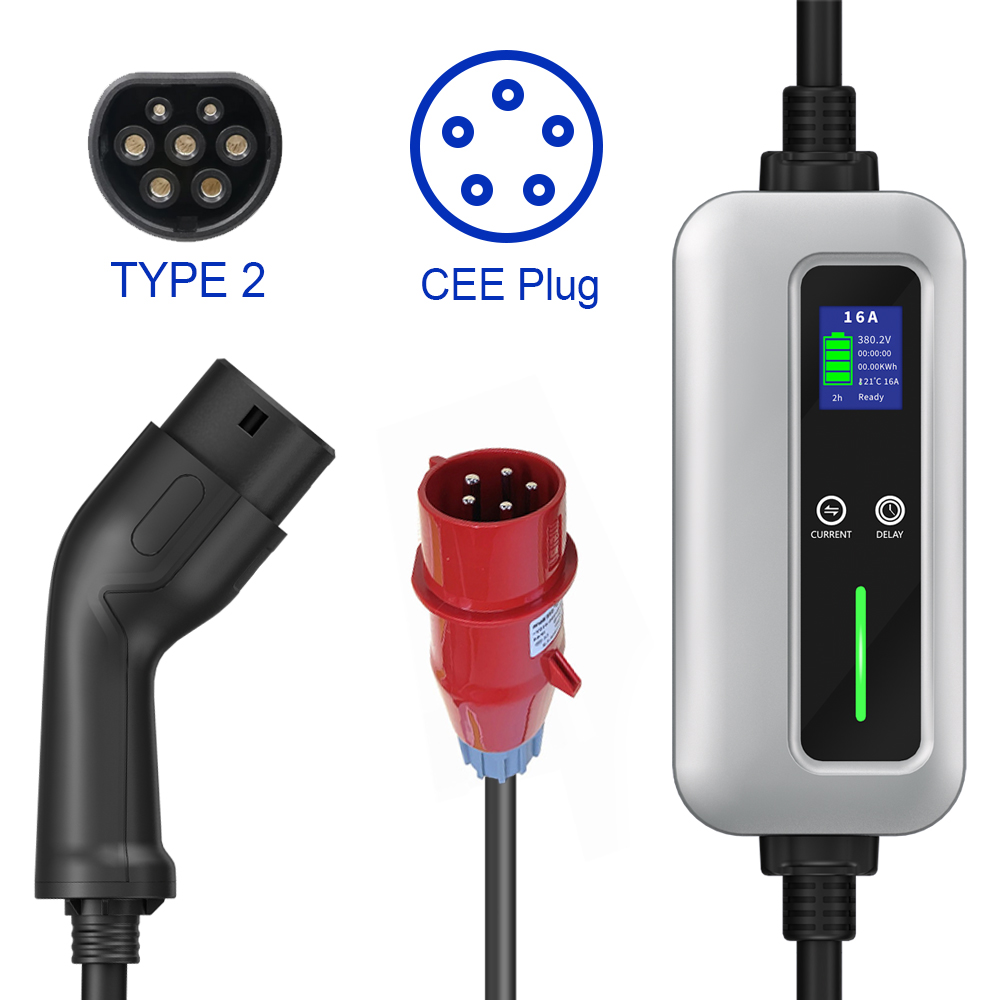
Electric vehicles have a smaller carbon footprint than gasoline-powered cars, no matter where your electricity comes from.
The electricity that charges and fuels battery electric and plug-in hybrid vehicles comes from power grids, which rely on a range of sources — from fossil fuels to clean renewable energy.
Energy grids can vary from one state to another, which means that the carbon footprint of driving an electric vehicle ranges depending on the source of its electricity.
Electric vehicles are more efficient in converting energy to power cars and trucks, electricity across the board is cleaner and cheaper as a fuel for vehicles, even when that electricity comes from the dirtiest grid.
Running electric or hybrid cars on the grid in any state has lower greenhouse gas emissions than gasoline-powered cars, as revealed in a study by experts at the Union of Concerned Scientists. And as states clean up their energy grids, the benefits of electric vehicles become stronger.

